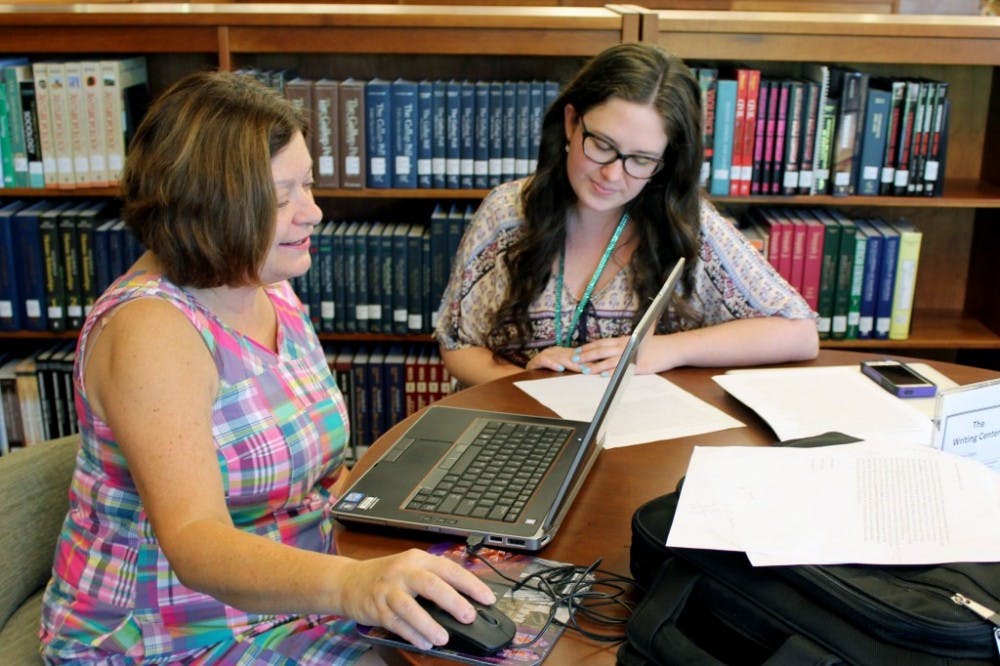Despite Elon University’s “slow growth” trajectory, as outlined under the Elon Commitment, appointments to the Writing Center have increased a little faster, with consultations more than doubling within the last six years. As the student-run service has grown, it has grappled with how to remain relevant and where to draw the line between enabling and editing.
Recently, the Writing Center has undergone renovations, adding a new presentation practice room and two multimedia studios that give students hands-on experience with the latest technology.
The number of consultants available to students, faculty and staff helps keep wait times down, consisting of 40-60 fully trained consultants to help the community with writing.
Students are encouraged to schedule an appointment in advance — online, over-the-phone or in-person to keep the line moving.
The number of sessions scheduled with the Writing Center consultants continues to increase. The number of sessions has more than doubled in the last six years, resulting in about 3,200 sessions last year alone.
More so than the Writing Center, the Writing Excellence Initiative admitted that there was a flaw in Elon’s writing education programs across majors.
That’s not to say problems don’t exist in the center as it stands. Students who have recently had appointments in the Writing Center aren’t all happy.
From complaints about bias to grumbles about wait times, first-year students in particular haven’t all been pleased.
“The session seemed to be very rushed,” first-year Jordane Mink said. “I understand that the consultants have a lot on their plates, but I wish I would have received more input in my writing.”
The Writing Center consultants stress that they want students to voluntarily sign up for a session. Professors are encouraged to discuss the value of the resource to students, and possibly add a small incentive for making use of it, but are asked to refrain from making it a requirement.
“We are not the police. We don’t want to be a punishment,” said Paula Rosinksi, director of the Writing Center and associate professor of English.
On the whole, students on campus report mostly positive experiences and have gone on to recommend the service to others.
“This is a great resource to have,” said first-year Jacquelyn McGorty. “It’s extremely beneficial and a good use of time.”
So far this year, the Writing Center has had a steady flow of students, faculty, staff and members of the Elon community in and out of its doors. The visible space, online scheduling and raised awareness across campus have been a major factor to the increased success of the Writing Center.
One idea currently being developed is a new family of Elon Fellows — Writing Fellows. Fellows would be trained consultants would be paired with a faculty member who would provide them with assignments. The student and the professor would be able to develop writing assignments and provide feedback, allowing them to learn from one another.


